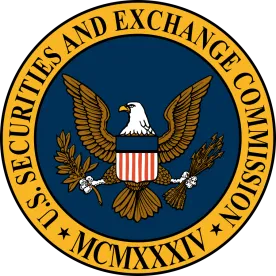On August 26, 2020, the US Securities and Exchange Commission (the SEC or “Commission”) adopted amendments to the definition of “accredited investor” to add new categories of qualifying natural persons and entities and make certain other modifications to the definition. The amendments expand the categories of individuals who will qualify as accredited investors. The changes to the definition of “accredited investors” are significant in that they allow individuals and entities to participate in the capital markets as long as they have the requisite financial sophistication, knowledge and expertise needed to conduct meaningful investment analyses. We anticipate that the expansion of the “accredited investors” definition will promote capital formation, expand investment opportunities to more investors and allow such investors to improve the risk-return characteristics of their portfolios. The amendments will become effective 60 days after publication in the Federal Register.
IN DEPTH
The “accredited investor” definition is one of the principal tests for determining who is eligible to participate in private capital markets. Historically, individual investors who do not meet specific income or net worth tests, regardless of their financial sophistication, have been denied the opportunity to participate in investment opportunities that do not have the additional protections provided by registration under the Securities Act of 1933, as amended.
Specifically, the final amendments to the “accredited investor” definition add the following new categories of natural persons and entities that may qualify as accreditor investors:
- Natural persons who have certain professional certifications and designations or other credentials as designated by the Commission (New Provision 501(a)(10)). In determining whether an individual qualifies for accredited investor status, the Commission will consider a nonexclusive list of attributes, including whether the certificate, designation or credential arises out of an examination or series of examinations administered by a self-regulatory organization or other industry body or is issued by an accredited educational institution. The Commission is adopting a good standing requirement, but is not requiring that the individual practice in the fields related to the certification or designation or that such individual has practiced for a minimum number of years. To assist members of the public, the professional certifications and designations and other credentials currently recognized by the Commission as satisfying the adopted criteria will be posted on the Commission’s website. The Commission will provide notice and an opportunity for public comment before issuing any final order with respect to any future designations of qualifying credentials.
- Natural persons who are “knowledgeable employees” of private funds (New Provision 501(a)(11)). This category includes, among other persons, trustees and advisory board members, or persons serving in a similar capacity, of a Section 3(c)(1) or 3(c)(7) fund, as contemplated under the Investment Company Act of 1940, or an affiliated person of such a fund that oversees the fund’s investments, as well as employees or an affiliated person of such a fund who, in connection with their regular functions or duties, has participated in the investment activities of the fund for at least 12 months. The final amendments exclude employees performing solely clerical, secretarial or administrative functions.
- SEC and state-registered investment advisors (including those that are sole proprietorships),exempt reporting advisors and advisors to private funds (Amended Rule 501(a)(1)). This category includes investment advisors exempt from registration as investment advisors under (y) Section 203(l) of the Investment Advisers Act because they are advisers solely to one or more venture capital funds, or (z) Rule 203(m)-1 of the Investment Advisers Act because they are advisers solely to private funds and have assets under management in the United States of less than $150 million. The SEC has included these advisors in the accredited investor definition because it considers them having the requisite financial sophistication needed to conduct meaningful investment analyses.
- Rural business investment companies (RBICs) (Amended Rule 501(a)(1)). An RBIC is defined as a company that is approved by the Secretary of Agriculture and that has entered into a participation agreement with the Secretary. RBICs are similar to small business investment companies (SBICs), which are already considered accredited investors, as they are treated similarly to SBICs under federal securities laws and share a common purpose of promoting economic development and creating wealth and job opportunities in rural areas.
- Limited liability companies that meet the requirements of Rule 501(a)(3) (Amended Rule 501(a)(3)). The amendments clarify that limited liability companies are accredited investors. Previously, Rule 501(a)(3) did not expressly include limited liability companies under the certain types of entities that qualify for accredited investor status if they have total assets in excess of $5 million and were not formed for the specific purpose of acquiring the securities being offered.
- Any entity owning “investments” (as defined in Rule 2a51-1(b) under the Investment Company Act) in excess of $5 million that is not formed for the specific purpose of acquiring the securities being offered (New Provision 501(a)(9)). This catch-all category includes entities that were not historically included in the accredited investor definition, such as American Indian tribes, labor unions, governmental bodies and funds and entities organized under the laws of the foreign country. The amended rule focuses on the amount of investments owned by the entity to determine its accredited investor status rather than the nature of the entity itself, as long as the entity was not formed for the purpose of making the investment in question.
- Certain “family offices” and “family clients of family offices” (New Provisions 501(a)(12) and 501(a)(13)) Under the amendments, a family office will be deemed accredited investors if it meets the following requirements: (i) has at least $5 million in assets under management; (ii) is not formed for the specific purpose of acquiring the securities offered; and (iii) provides that prospective investments are directed by a person who has such knowledge and experience in financial and business matters. Also, family clients of family offices will be considered accredited investors if their family office meets the requirements stated above and the prospective investment in the issuer is directed by such family office. The term “family clients” is defined under Rule 202(a)(11)(G)–1 under the Investment Advisers Act and generally consists of family members, former family members and certain key employees of the family office, as well as certain of their charitable organizations, trusts, and other types of entities.
Also, the final amendments now permit the income and wealth of “spousal equivalents” to be considered when determining a natural person’s accredited investor status. A spousal equivalent is defined as a cohabitant occupying a relationship generally equivalent to that of a spouse.
Changes to “Test-the-Waters” Rule 163B. Finally, the Commission also amended Rule 163B to add some of the new categories of accredited investors to the list of persons and entities with whom issuers can engage in “test-the-waters” communications. The amendments allow an issuer to engage in “test-the-waters” communications with persons and entities that are, or that the issuer or persons authorized to act on its behalf reasonably believes are, accredited investors under (y) the new Rule 501(a)(9), which permits accredited investors to be entities of a type not listed in paragraphs Rules 501(a)(1), (a)(2), (a)(3), (a)(7) or (a)(8), that own investments in excess of $5 million and that were not formed for the specific purpose of acquiring the securities offered, and (z) the new Rule 501(a)(12), which includes family officers as accredited investors. Prior to the amendments, the “test-the-waters” rules permitted “test-the-waters” communications to prospective investors that are, or that the issuer reasonably believes are, qualified institutional buyers, as defined in Rule 144A, or institutions that are accredited investors, as defined in Rule 501(a)(1), (a)(2), (a)(3), (a)(7) or (a)(8). These changes to the Rule 163B maintain the consistency between Rule 163B and the emerging growth company “test-the-waters” rules under Section 5(d) under the Securities Act of 1933, in that institutional accredited investors under proposed Rules 501(a)(9) and (a)(12) would automatically fall within the scope of Section 5(d).







 />i
/>i
